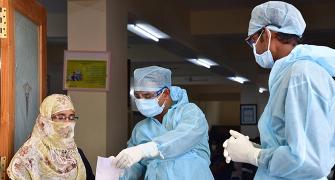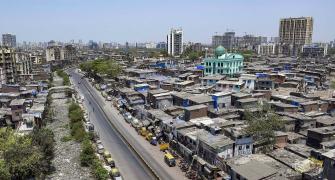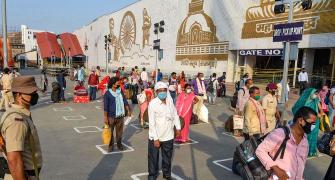Community transmission of the coronavirus infection has been well-established across large sections or sub-populations in the country, a group of health experts, including doctors from the All India Institute of Medical Sciencesand two members of an Indian Council of Medical Research research group on COVID-19, has said.

The government has maintained that the country has not yet reached the community transmission stage of the disease even as the death toll due to COVID-19 rose to 5,394 and the number of cases climbed to 1,90,535 in the country on Monday.
India has now become the world's seventh worst-hit country in terms of coronavirus cases.
The report compiled by experts from the Indian Public Health Association, Indian Association of Preventive and Social Medicine and Indian Association of Epidemiologists has been submitted to the prime minister.
"It is unrealistic to expect that COVID-19 pandemic can be eliminated at this stage given that community transmission is already well-established across large sections or sub-populations in the country," the report said.
"The expected benefit of this stringent nationwide lockdown was to spread out the disease over an extended period of time to flatten the curve and effectively plan and manage so that the healthcare delivery system is not overwhelmed. This seems to have been achieved albeit after the fourth lockdown with extraordinary inconvenience and disruption of the economy and life of the general public," they said in the report.
The 16-member joint COVID Task Force includes Dr Shashi Kant, Past President IAPSM, and Head of the Centre for Community Medicine at AIIMS, New Delhi, Dr Sanjay K Rai, National President, IPHA and Professor, CCM, AIIMS, Dr D C S Reddy, former Professor and Head, Community Medicine, IMS, BHU, Varanasi and Dr Rajesh Kumar, former Professor & Head, DCM&SPH, PGIMER, Chandigarh.
Dr Reddy and Dr Kant are members of an ICMR research group on epidemiology and surveillance for COVID-19.
The experts noted that India's nationwide lockdown from March 25 till May 31 has been one of the most "stringent" and yet COVID cases have increased exponentially through this phase, from 606 cases on March 25 to 138,845 on May 24.
"This draconian lockdown is presumably in response to a modelling exercise from an influential institution which presented a 'worst-case simulation'. The model had come up with an estimated 2.2 million deaths globally. Subsequent events have proved that the predictions of this model were way off the mark," the report said.
The experts also rued that epidemiologists have not been consulted while making decisions on tackling the pandemic.
"Had the Government of India consulted epidemiologists who had better grasp of disease transmission dynamics compared to modellers, it would have perhaps been better served," the report said.
From the limited information available in the public domain, the experts said, it seems that the government was primarily advised by clinicians and academic epidemiologists with "limited field training and skills".
"Policy makers apparently relied overwhelmingly on general administrative bureaucrats. The engagement with expert technocrats in the areas of epidemiology, public health, preventive medicine and social scientists was limited", they said.
Experts stated that India is paying a heavy price, both in terms of humanitarian crisis and disease spread.
"The incoherent and often rapidly shifting strategies and policies, especially at the national level, are more a reflection of 'afterthought' and catching up phenomenon on part of the policy makers rather than a well thought cogent strategy with an epidemiologic basis," they said.










